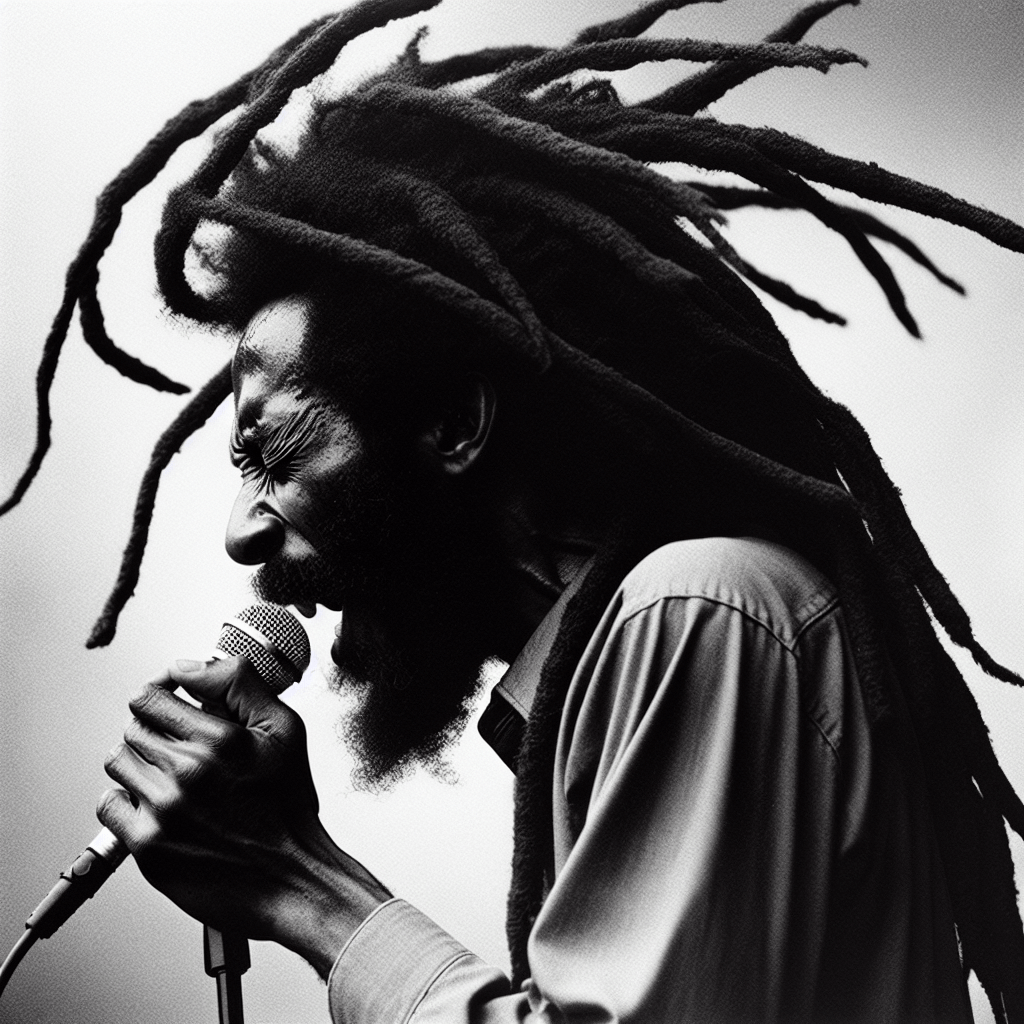### Exploring the Life and Legacy of Bob Marley: Reggae Icon and Cultural Phenomenon
Bob Marley stands as one of the most influential musicians of the 20th century, known for his captivating music that brought reggae into the global limelight but also for his messages of peace, unity, and activism. His legacy extends beyond music, as he has become a cultural icon symbolizing resistance against oppression and the power of the human spirit.
Early Life and Musical Beginnings
Bob Marley was born on February 6th, 1945 in Nine Mile, Saint Ann Parish, Jamaica. He was raised in a rural community by his mother, Cedella Booker, and his father, Norval Marley, who played a minimal role in his upbringing. Music became an early passion for Marley, who, influenced by the Rastafari movement and the socio-political issues affecting Jamaica, used his talent to express his spiritual and revolutionary ideas.
In the late 1950s, Marley moved to Trenchtown in Kingston where he met Neville “Bunny” Livingston (later known as Bunny Wailer) and Peter Tosh, who would all eventually form the legendary reggae band The Wailers. The band began recording in the early 1960s and faced various iterations before their breakthrough.
The Formation and Rise of The Wailers
The original Wailers—Marley, Bunny Wailer, and Peter Tosh—were immensely talented and complemented each other’s strengths. They combined traditional Jamaican music with elements of rocksteady and rhythm and blues, cultivating a distinctive sound integral to the development of reggae.
Under the management of Chris Blackwell and Island Records, The Wailers released their first international album, “Catch a Fire,” in 1973. This milestone epitomized their creative evolution and established them as major figures in not just reggae but popular music worldwide.
Bob Marley’s Ascension as a Solo Artist
Despite Wailers’ success, internal disagreements caused the group to split, enabling Marley to emerge as a solo artist in the mid-70s. Backed by musicians who came to be known as The Wailers band, which included original members Aston “Family Man” Barrett and Carlton Barrett, Marley released some of his most philosophical and stirring works during this period.
Legacy Leaving Albums
Albums such as “Natty Dread” (1974) allowed Marley to distill concerns relating to love (‘No Woman No Cry’), injustice (‘Them Belly Full’), and revolution (‘Rebel Music’). He followed up with other powerful releases. “Exodus” (1977), often regarded as one of the greatest albums in popular music history, featured an array of influential hit singles such as ‘Jamming’, ‘Waiting in Vain’, and ‘One Love’.
Rastafari Movement and Political Impact
Marley was an ardent follower of the Rastafari movement—a religious philosophy that blends Christianity with Afrocentrism—which profoundly influenced his life and music. Rastafari’s themes frequently dominated his lyrics, invoking Jah (God), promoting Pan-Africanism, and calling for social justice.
The musician’s influence expanded beyond the musical spectrum—he became involved in the politics of Jamaica by participating in peace concerts. Pleading for unity between warring political factions, he most famously brought together political leaders Michael Manley and Edward Seaga on stage during the One Love Peace Concert in 1978.
Global Impact and Untimely Death
Marley’s international endeavours cemented his status as not only a global music sensation but also an ambassador for peace. Consequently, his cultural impact endures transcending class, race, language barriers.
Tragically, Marley battled cancer diagnosed in 1977 after a toe injury which later metastasized. Rejecting traditional medical treatments due to religious beliefs proved detrimental. He sought unconventional treatment methods yet fought relentlessly until succumbing to cancer at age 36 on May 11th, 1981 in Miami, Florida.
